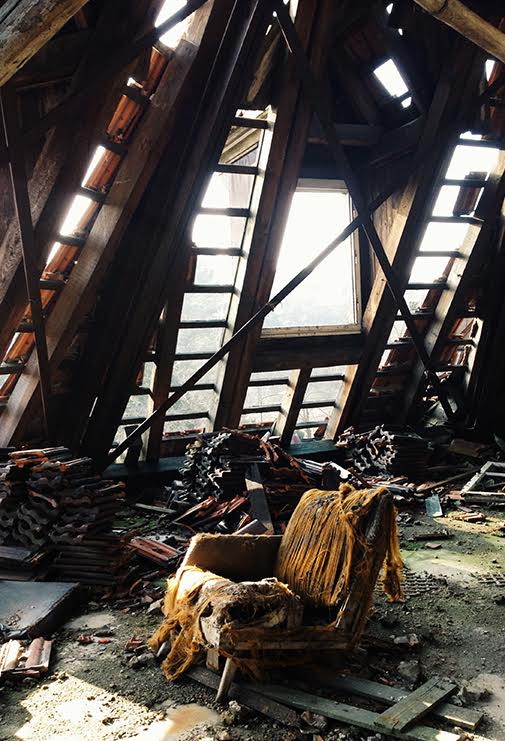- Vol. 02
- Chapter 12

The Color Orange
I hate that chair with a passion that starts deep in my gut and boils to the surface every time I see the ugly orange color. A color like dog shit or cat vomit. My father spent his last months there. Just sitting. Staring at nothing, knowing nothing, knowing no one. I’d turn on the television, and a spark came to his eyes when the action was violent or the sex hot.
Dad held our family together. He rescued my brother George from a spiraling decline into drugs. He pulled me off the streets when I ran away and turned to prostitution. He growled at Mom’s blue hair and tattoos. Mom, sitting in "her" orange chair, yelled at him that she had a right to do whatever she wanted. He yelled that she was no decent, God-fearing woman, and it was Mom’s fault George was an addict and I a whore. The argument ended when Mom slapped Dad, a hard, vicious slap that I heard upstairs. She walked out. We never saw her again.
That hideous chair was like a living beast. No one dared touch it after Mom left. It sat square in front of the TV and we’d sit on the couch, angled off to the right. When George and I moved away to live our own lives, he a narc, me an EMT, neither of us married, the chair still sat there, dominating the room.
Then Dad got sick. He forgot things. He called me Sharon (my name is Sarah, Mom was Sharon). He’d leave keys in the freezer and ice trays in the drier. He’d wander out and forget where he lived. I returned home. The chair was still there. A gray layer of dust muted the awful orange and Dad avoided it like he might avoid a rabid dog.
One morning, about a month after I had returned home, I found Dad sitting in “Mom’s” chair.
The Color Orange
I thought then that the end was near. But it wasn’t. Dad sat in that chair, watching violence and sex, for a year. I admit now that every day I prayed that it would be his last. I prayed for his death.
After, I heaved the chair up and set it on the curb, hoping someone would steal it. In hours it was gone and I often wondered who so desperately needed it.
Now I find it in a home destroyed by floods and winds. The family did not survive. The chair is no longer a menacing beast: tattered upholstery, broken legs, destroyed springs. Today workers arrived to clear the debris.
“Were tossing this chair,” they say as I search the house for clues about the family.
“No,” I say. “I’ll take it home.”
They look at me as if I’m crazy. Maybe I am. It was Mom’s and Dad’s chair. I cannot let it die such an ignoble death.
